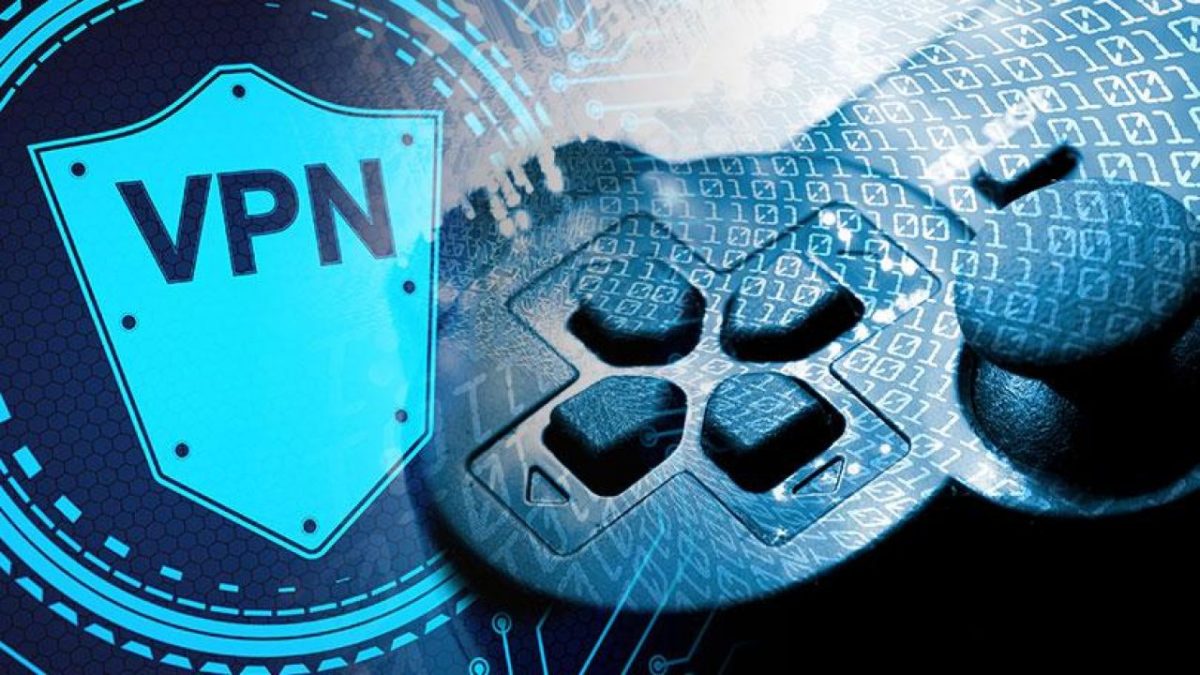The best VPN for gaming is one that provides a steady and fast connection while also allowing you to choose from a variety of servers across the world.
Is a VPN good for gaming?
Using a VPN for gaming can aid you in a variety of ways, including allowing access to other servers, boosting ping and lowering lag, and even defending you against DDoS assaults, by encrypting your internet connection and masking your IP address.
VPNs (virtual private networks) are useful to unblock websites, view streaming material, and connect to corporate networks. Many VPN providers have begun to offer their services to gamers as a new market.
VPN companies may make grandiose promises about lowering latency, allowing you to access unreleased or out-of-region titles, or just having “the finest VPN for gaming.”
So, do you need a VPN to play video games? While VPNs and gaming aren’t always the perfect combination, you can still profit from utilizing a VPN for gaming in some circumstances.
Does a gaming VPN lower ping?
A VPN is unlikely to minimize ping times or lag times because all VPNs route your internet traffic through a remote proxy server. So, why do some VPN companies claim that using a VPN while gaming can assist reduce ping?
Battle royale games like Fortnite, Apex Legends, and PlayerUnknown’s Battlegrounds (PUBG), as well as team-based shooters like Overwatch, have been around for more than two decades and continue to achieve new heights.

As an online player, only one thing matters: a solid, low-latency connection. Some VPN providers claim that connecting to a server close to your gaming server would reduce latency times when playing games like Dota 2 or Counter-Strike: Global Offensive.
Using a VPN for gaming won’t reduce ping
We put this notion to the test and found that gaming using a VPN did not reduce ping or improve lag times. Your data must still travel from your computer to a VPN server and back, and the longer this journey takes, the slower it will feel. Although the best VPNs for gaming will bring minimum lag into your connection, any lag is preferable to none.
If you want to improve your gameplay in Ark: Survival Evolved or other multiplayer games, a VPN for gaming is unlikely to help. Instead of using a gaming VPN to reduce ping, many gamers report increasing connection problems and slowness caused by the VPN server, implying that the VPN slowed down the gaming experience.
A gaming VPN can help you get around your ISP’s P2P (peer-to-peer) connection restrictions (internet service provider). The concept is sound in theory, but we haven’t found that using a VPN for gaming is necessary in our experience.
A server-client approach is used in many multiplayer games, in which the game is hosted on a central server and all players connect to it. Other games, such as those that wish to save money on servers, will instead employ a peer-to-peer (P2P) paradigm, in which participants host games themselves.
P2P connections may be blocked by some ISPs, which may have an impact on games like PUBG. That’s why VPN providers may suggest that utilizing a VPN for gaming will benefit you.
We found no instances of ISP-based P2P filtering that hampered multiplayer gameplay in our research on some of the most popular titles and ISPs around the world. An ISP might restrict some P2P connections in extremely rare circumstances, and we did notice a few complaints where utilizing a VPN for gaming fixed ISP-related connection issues.
Will using a VPN for gaming evade IP bans?
IP address bans, in addition to account bans, allow gaming producers to expel problematic users from their games. A VPN can help you get past an IP ban if you’ve been banned for using modifications, cheating, or otherwise breaching the terms of service.
IP bans can be temporary (e.g., for 24 hours or a week) or permanent (e.g., for a year). If you’ve committed a punishable offense, the decision to expel you was most likely correct. IP bans, on the other hand, might occur for no apparent cause.
A VPN for gaming may help get around IP bans
Because a VPN hides your IP address, you may be able to circumvent an IP block by using one for gaming. However, we do not encourage anyone to circumvent the service rules in any games they play – and using a VPN to circumvent a ban is a clear breach of those terms.
Some game producers outright prohibit the use of VPNs for gaming, so if you haven’t been banned yet, you may be after play using a VPN. Any known IP addresses linked with popular VPNs are likely to have been blocked by these publishers, therefore utilizing a VPN for gaming will be useless.
Can a gaming VPN unblock geo-restricted games?
A VPN can help you access stuff that isn’t available where you are by allowing you to alter your IP address to one from another country. Many people use a VPN to get over geoblocks, which are when something is only available to IP addresses from specific regions of the world.
Streaming companies frequently have location-based content limits on the movies and TV shows you may watch online due to licensing agreements. Similarly, many multiplayer games divide players into servers based on their location. You might not be able to connect if your desired server is in Europe and you’re in the United States.

A VPN for gaming can get you around content restrictions
By giving you a new IP address in the same location as your selected server, setting up a VPN allows you to choose which server to play on no matter where you are. Gaming via a VPN isn’t especially useful if you want accessing a specific game, because most games can accessible from anywhere in the world.
The majority of multiplayer games are available in the United States, Europe, and much of Asia. However, gaming publishers based in one jurisdiction may not have permission to operate in other countries. Furthermore, some governments may prohibit particular games from playing within their boundaries. Knowing the best countries to connect to via VPN can aid in these rare circumstances.
Can a VPN for gaming prevent ISP throttling?
Some VPN companies claim that because a VPN keeps your ISP from knowing exactly what you’re doing online, they won’t throttle or limit your internet speed. Unfortunately, it isn’t as simple as that.
Throttling on the internet is usually dependent on one of two factors: your online activity or your bandwidth usage. ISPs may throttle users who consume a lot of bandwidth, such as those that play a lot of games, stream a lot of shows, or pirate a lot of files. A VPN can keep your ISP from knowing what you’re doing, but it can’t hide your data usage.
Your ISP may throttle your internet connection if you reach or exceed the data cap on your internet subscription. A VPN adds an added degree of security, but it can’t totally prevent internet throttling.
Gaming through a VPN can sometimes grant you early access to games and DLC (downloadable content) that aren’t yet available in your area. If a game launched in the United States but not in Europe, you can change your server location to the United States, buy the game, and play before everyone else. In some circumstances, this also applies to DLC material.
Gaming via a VPN can help you get past location-locked release dates in some cases.
Take, for example, Fallout 4. Due to time changes, many fooled Steam into thinking they were in New Zealand, where Fallout 4 released almost a day earlier than in the United States. Instead of receiving early access, these players were prevented from playing the game on Steam, which meant they couldn’t play it at all.

Do gaming VPNs prevent DDoS attacks?
Because VPNs hide your IP address, a gaming VPN can theoretically prevent others from accessing your IP address and using it to launch a DDoS assault against you. A DDoS (distributed denial of service) attack occurs when a hacker employs a botnet to flood an IP address or server with requests, causing it to become unavailable.
Competitive gaming is vulnerable to DDoS assaults since it is such a large sector. Some VPN companies argue that your opponents may use one against you, causing you to lose the game, and they recommend utilizing VPNs and gaming together to combat these attacks.
To avoid DDoS assaults, there’s nothing wrong with using a VPN to hide your IP address. It’ll work, but your chances of being targeted by a DDoS attack are incredibly slim if you’re simply a normal gamer.
If you run a dedicated championship Minecraft or League of Legends server, though, you’re a considerably more vulnerable target for DDoS attacks. If you’re in that line of work, though, you’re probably not searching for safety from consumer-grade gaming VPNs.
Click here to read more on our blog.

